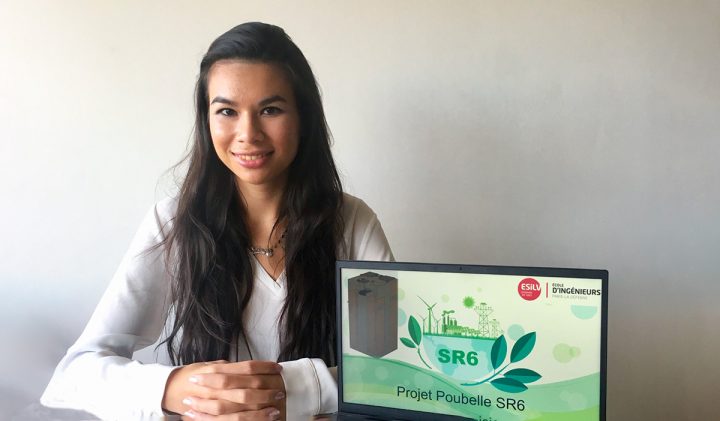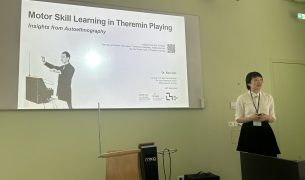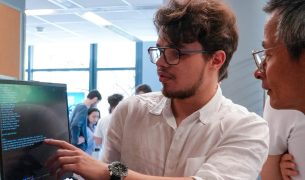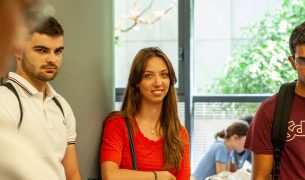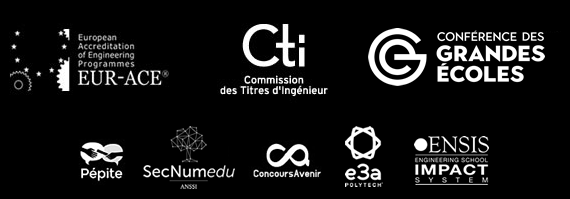A team of ESILV engineering students won third prize in the Coup2Boost competition organised by Capgemini. This award demonstrates the viability of their solution for efficient recycling: a voice-controlled 2.0 waste bin, which replaces manual waste collection with an automatic system.
The Generalist Digital Engineering Innovation Project, or PING, comes into play in the first year of the engineering cycle at ESILV, a generalist engineering school at the heart of digital technologies. This programme’s objective is to submit an innovative project in the context of a competition. That’s a “learning by doing” approach that teaches engineering students how to use new technologies, confront themselves with other students and get them to promote their technical project.
This year, a team of five students from the class of 2022 shone in the final round of the Coup 2 Boost competition organised by Capgemini. Marie-Claire HA and Romain Amann (majoring in Modelling and Computational Mechanics), Ludovic Chevallier (majoring in Data and Artificial Intelligence), Romain Kersuzan and Antoine Delay (majoring in IoT and Security) convinced the Capgemini jury, who awarded them the third prize in the 2020 edition.
A PING project to improve the quality of recycling
“The issue of recycling is a global one. Nowadays, users don’t know how to sort their garbage correctly”, explains Anne-Marie Ha, PING project leader for the SR6 team. “The solution is to use our 4-in-1 bin, to sort quickly and better!
This voice-controlled automatic 2.0 bin allows users to sort waste and compact it. Our project is to create a container that will enable the user to open and close the selected compartment by vocal command when the user says “cardboard bin”, “paper bin”, “plastic bin”, “can bin”.
Also, it can be accessed via a motion sensor, by only passing your hand over the selected compartment”. The SR6 bin compacts the waste from each box to facilitate the sorting chain (from waste collection to manual sorting in the industry). This smart and comprehensive waste bin also features a cap compartment, set up “to prevent the user from forgetting to remove the caps, which could create problems when compressing plastic waste”.
The ESILV project meets an environmental and efficient waste sorting logic. It aims to provide access to sorting for everyone, to raise awareness about recycling and to integrate sorting into daily practices.
The first phase, modelling, was to integrate all the components of the waste bin. “We have precisely modelled the location and position of the various components, as well as how they will be linked or powered.”
The second stage was the electronics part, which they tackled quickly. “We already know which components we want, how they will be connected and how they will work. We have done the tests on most of the components except for the voice control. We have also carried out the functional, structural and dimensional analysis of the product.” The final stage, the marketing of the product, is based on an economic, societal and competition market study.
“The biggest part of the budget will go into the manufacture of the concept of proof. This expense will cover the purchase of raw materials, components, as well as the assembling and fixing of the different parts. Likewise, we will allocate 40% of the sum to the model design, as well as to the mobile application that we will create from A to Z. This will be playful and will encourage the user to sort waste. The rest of the sum is divided between transport, storage and marketing expenses if we finalise the product”.
This third prize comes with a grant of 1,000 euros to bring the project to fruition and support from the Capgemini group. It is also an opportunity for engineering students to develop their entrepreneurial skills through innovative and solidarity projects.









